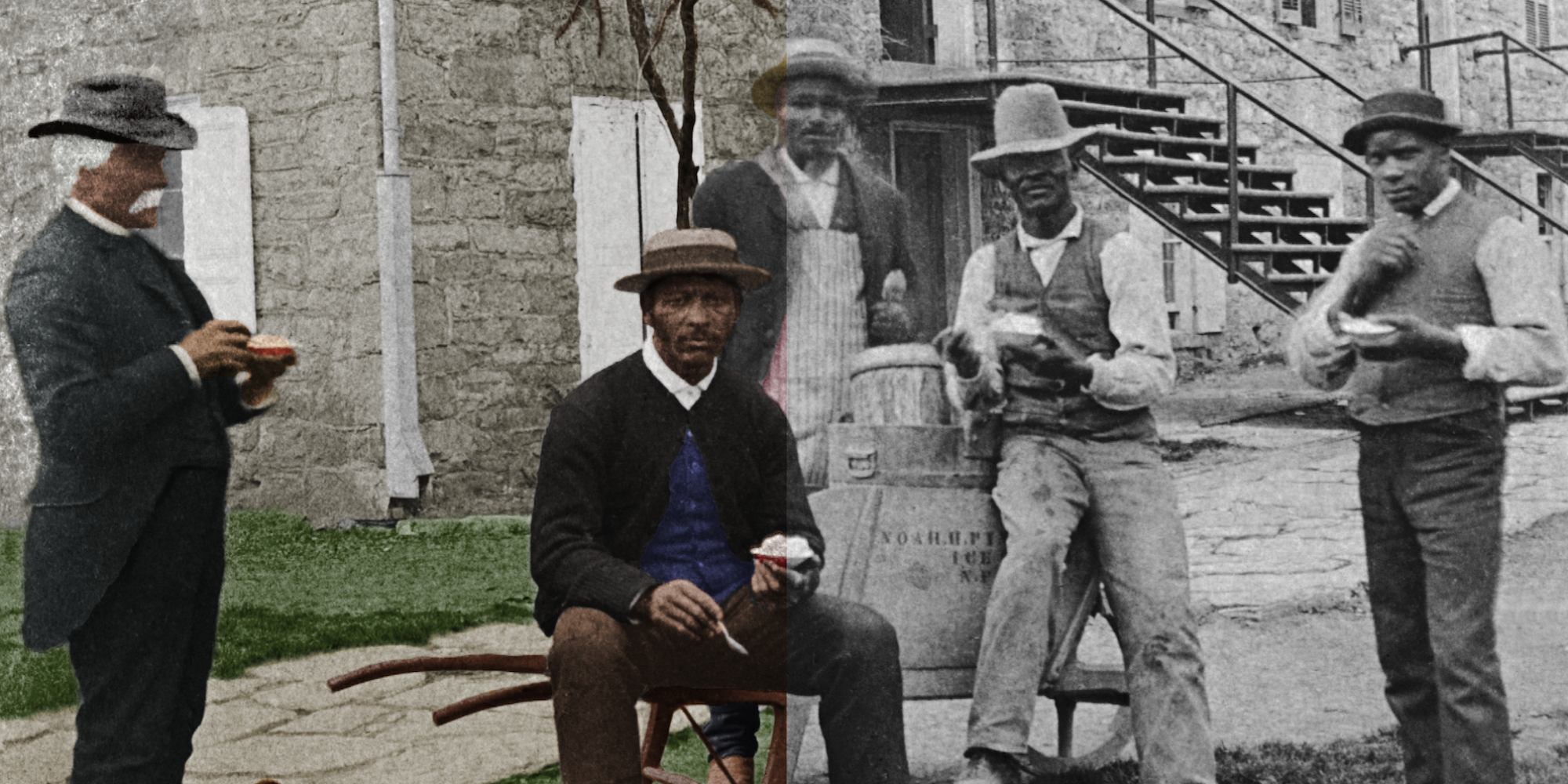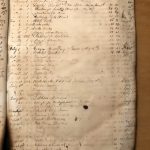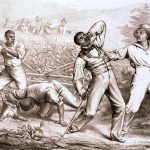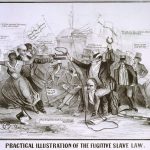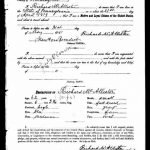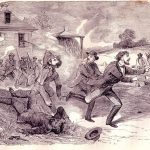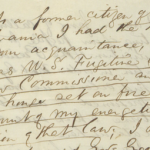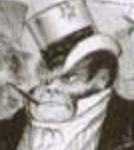 McAllister’s presence at Dickinson (Class of 1840) has almost been entirely forgotten. There is not even a photograph of him available in the college records. Even in the generally comprehensive encyclopedia of famous graduates produced by the College Archives, there is no entry for him. Yet McAllister was one of the most aggressive (and notorious) U.S. fugitive slave commissioners of the 1850s. For now, all we have available to depict him are illustrations of fugitive commissioners from the blizzard of antebellum political cartoons that took aim at the much-reviled fugitive slave rendition system.
McAllister’s presence at Dickinson (Class of 1840) has almost been entirely forgotten. There is not even a photograph of him available in the college records. Even in the generally comprehensive encyclopedia of famous graduates produced by the College Archives, there is no entry for him. Yet McAllister was one of the most aggressive (and notorious) U.S. fugitive slave commissioners of the 1850s. For now, all we have available to depict him are illustrations of fugitive commissioners from the blizzard of antebellum political cartoons that took aim at the much-reviled fugitive slave rendition system.
BRIEF PROFILE
There is no available photograph of Richard McAllister, a man who became one of the nation’s most notorious fugitive slave commissioners in the 1850s. McAllister was also a graduate of Dickinson College, Class of 1840. He was born and raised near Harrisburg, on one of the last slaveholding plantations in Pennsylvania. After he left college and spent some time in the South, McAllister became a rising lawyer and Democrat in central Pennsylvania, but his pro-slavery leanings only came into full focus in 1850, when he was appointed U.S. Commissioner for the region and tasked with enforcing the controversial Fugitive Slave Law of 1850. The statute was part of the Compromise of 1850 and made it easier for Southern slaveholders to recapture runaways who had secretly journeyed to the Northern free states. From his Harrisburg office, McAllister masterminded the hunt for black freedom seekers, using whatever tactics he could. The commissioner held pre-dawn hearings, dispensed with semblance of fair hearings, separated families and colluded with slaveholders. McAllister was proud of his controversial efforts. “More fugitives have been remanded by me than any other U.S. Com.,” he bragged in one letter. Yet his critics were appalled. One abolitionist editor called McAllister “probably the worst” of all the Northern slave catching officials. The commissioner believed his enforcement of the law would help launch him into national politics, but in this ambition, he was repeatedly frustrated. McAllister eventually resigned his commissionership and complained to politician Simon Cameron: “I had a right to expect that in [the] case of success the Democratic party would indemnify me and reward me for services which no other man in the state would render.” Instead, McAllister was forced to pack up and begin a new life in the American West, spending time in Kansas and Iowa, serving in minor roles for the Pierce and Buchanan administrations, before the outbreak of the Civil War rejuvenated his career. McAllister was a strong Unionist who served in the military under Generals Curtis and Grant. After the Civil War, McAllister moved to Washington, DC, where he practiced law and was a distinguished member of the bar until his death in 1887. None of his obituaries, however, mentioned the most significant phase of his life –as one of the nation’s most notorious fugitive slave commissioners.
Video and map produced by Cooper Wingert (Class of 2020)
FURTHER READING
- Blackett, Richard. Making Freedom: The Underground Railroad and the Politics of Slavery. Chapel Hill: University of North Carolina Press, 2013.
- Eggert, Gerald G. “The Impact of the Fugitive Slave Law on Harrisburg: A Case Study.” Pennsylvania Magazine of History and Biography 109, no. 4 (1985): : 537-56 [JSTOR]
- Wingert, Cooper. “Richard McAllister, Fugitive Slave Commissioner,” American Slavery / Independent Study, Dickinson College, Fall /Spring 2018, [WEB]
IMAGE GALLERY
All images courtesy of the House Divided Project at Dickinson College (except where noted) with original publication details available inside our research engine
PRIMARY SOURCES
- Richard McAllister to Mrs. Charles Robinson, January 9, 1857, Territorial Kansas Online, University of Kansas, [WEB]
- Richard McAllister to Abraham Lincoln, February 7, 1861, Papers of Abraham Lincoln, Abraham Lincoln Presidential Library and Museum, Springfield, IL, [WEB]
- Richard McAllister to Abraham Lincoln, July 13, 1863, Abraham Lincoln Papers, Library of Congress, [WEB]
- Simon Cameron to Richard McAllister, November 13, 1864, Papers of Abraham Lincoln, ALPLM, [WEB]
- Richard McAllister to Benjamin Butler, January 24, 1865, quoted in, Jessie Ames Marshall, Private and Official Correspondence of Gen. Benjamin F. Butler, During the Period of the Civil War, (Horwood, MA: Plimpton Press, 1917), 5:516, [WEB]
